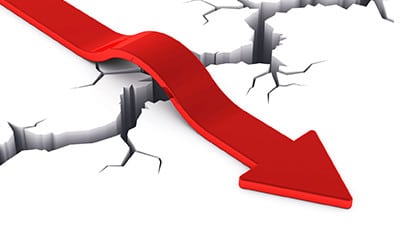
I’ve seen a crisis or two in my career. They seem to follow me. Early in my career I found myself with a utility at the center of one big rolling disaster that involved years of violent protests, hostile takeover attempts and a huge bankruptcy filing. Later, at another large utility, I watched a billion dollars of market cap evaporate in an instant when misfortune hit our largest energy trading partner—Enron. Then, the main event: head of communications for AIG during the global financial crisis.

The truth is every organization is vulnerable to a crisis at any time. Here are a few practical observations from the ones I’ve been through.
- Develop a plan, even a simple one. Drill it, improve it, repeat. While it should go without saying, it’s surprising how many organizations do little to prepare for a crisis. You can’t prepare for every eventuality, but you can do things that will save precious time and avoid confusion when a crisis hits. And you certainly never want to find yourself explaining to your CEO, customers and shareholders why you didn’t have a plan.
- Maintain perspective. In a crisis, it’s one of the most important yet most difficult things to do. When you’re in the middle of a storm it can be hard to tell if it’s a hurricane or a localized squall. Get other perspectives from trusted people who don’t have a stake in the controversy. It might save you from overreacting and making the situation worse.
- No matter how bad a crisis gets, it will pass. That doesn’t mean you should simply hunker down and try to ride it out, but neither should you think the sun won’t come up. It will. Think about life after the crisis.
- You always have supporters. Employees, shareholders, vendors, friends—there are many parties that will support you when something bad happens. And if your crisis has a political dimension, constituencies will line up for and against you. Give your supporters what they need to back you. That might be information or simply reassurance. But most of all, give them leadership.
- Stay focused on your strategy. In a crisis it’s easy to get distracted. There are brushfires, relentless media questioning, and new players in the mix, such as outside lawyers and consultants. Always be mindful of your overarching goal and don’t confuse tactics with strategy.
- Don’t default to habit. Just because you’ve always done something one way doesn’t mean it’s the right thing to do in a crisis. Don’t be afraid to try something new.
- Most importantly, take care of yourself and those around you. If you have an extended crisis, do your best to get some rest and eat something besides pizza and ibuprofen. You’ll have greater stamina and make better decisions. And remember that your staff and family have their own needs during a crisis, not to mention high anxiety levels. In any crisis, people count most.
Nick Ashooh is a senior director at APCO Worldwide. Follow APCO: @apcoworldwide
